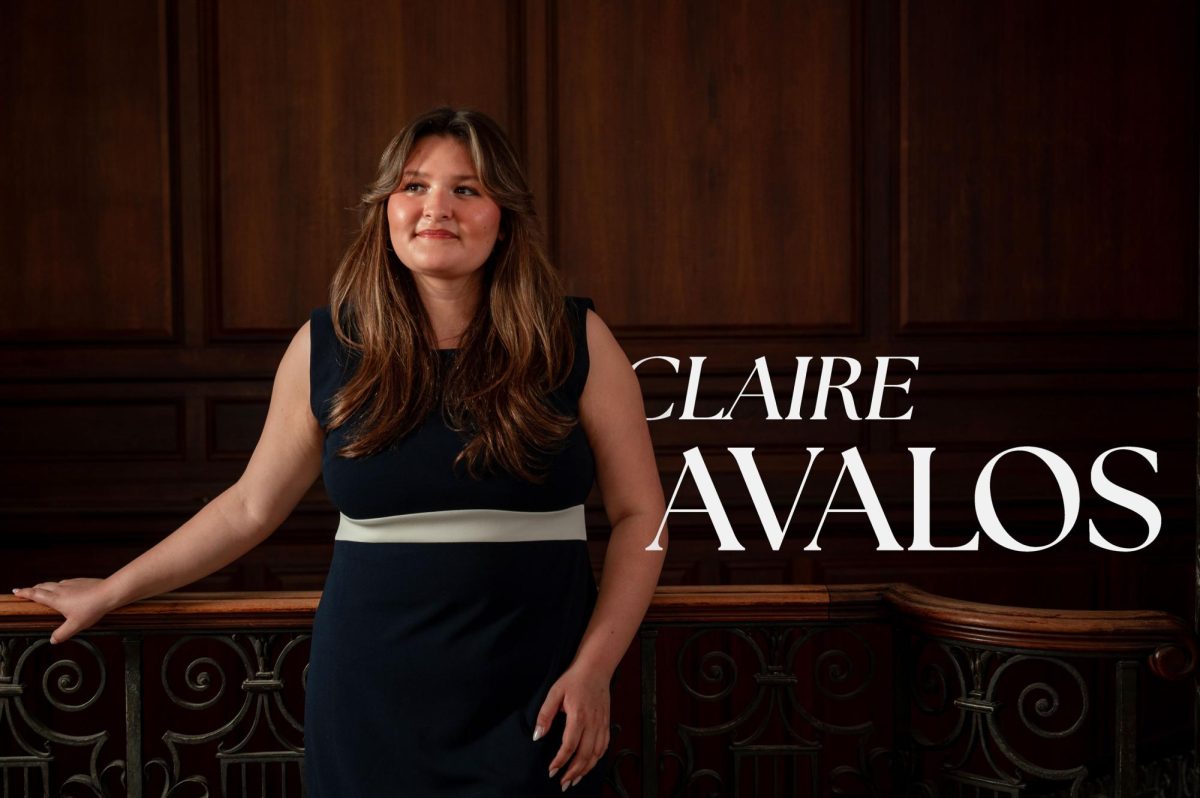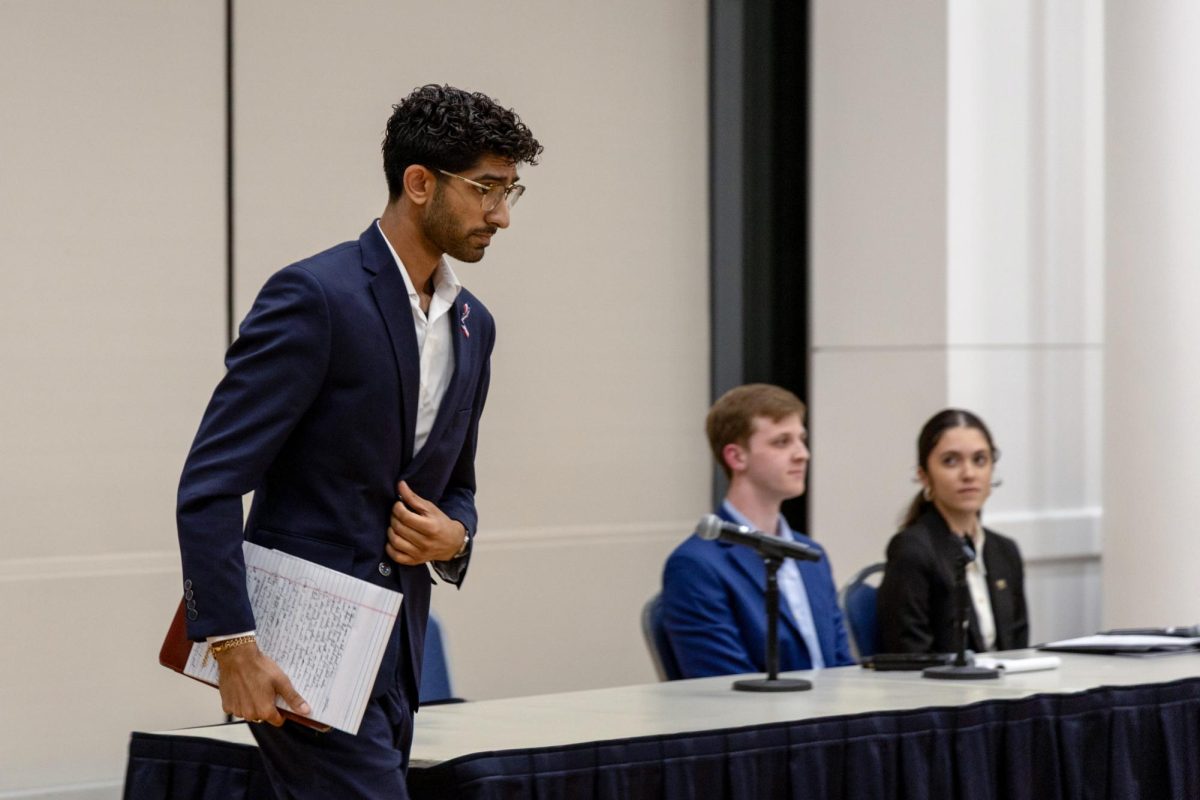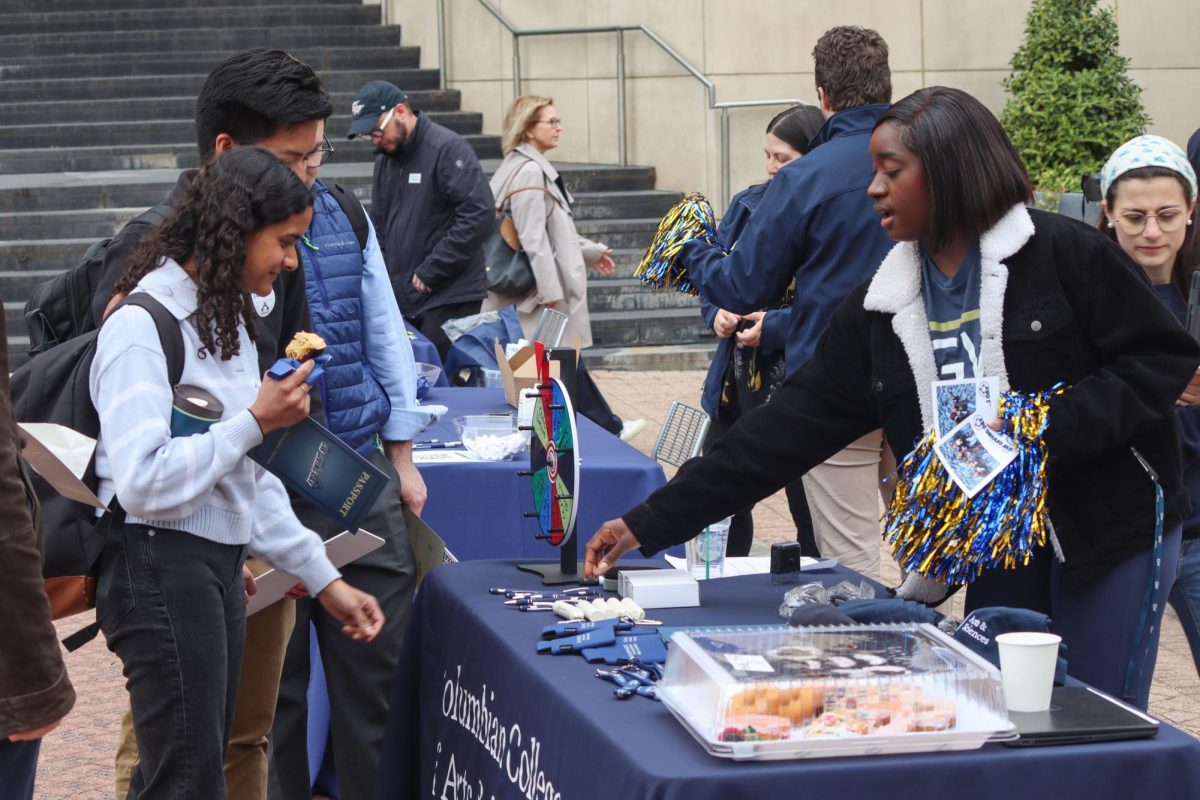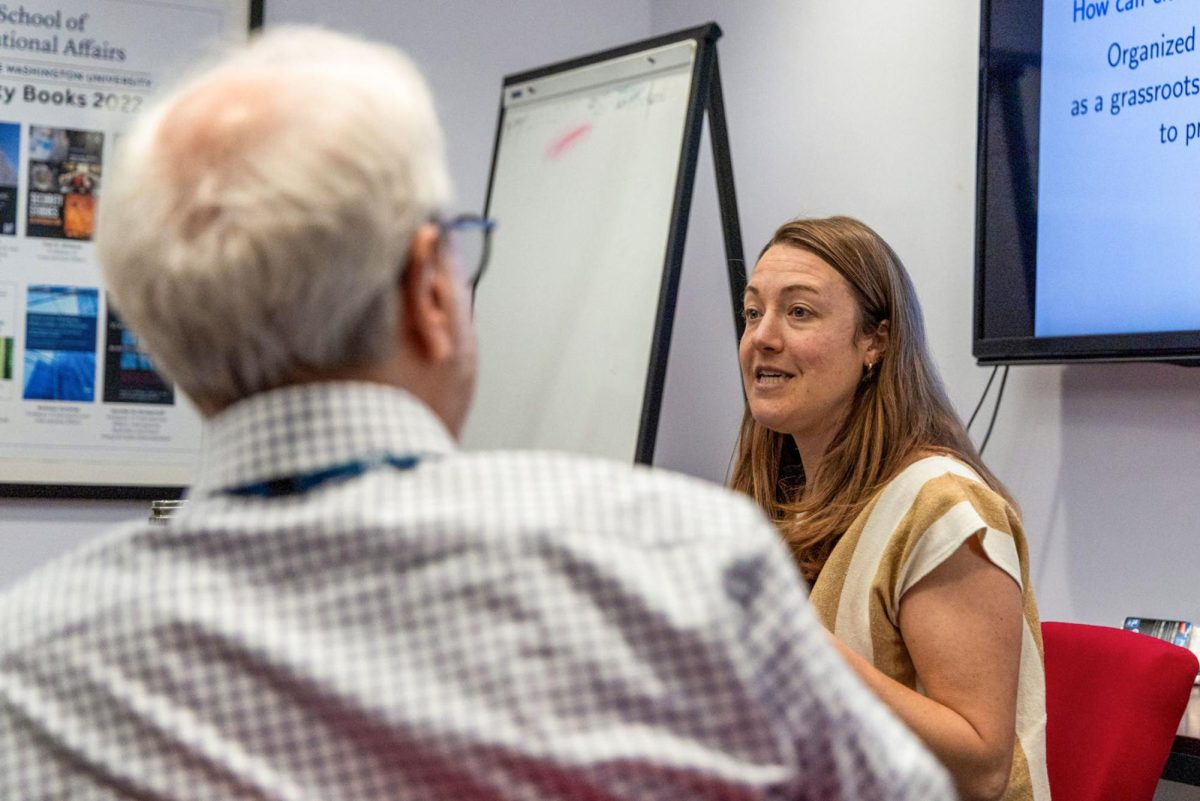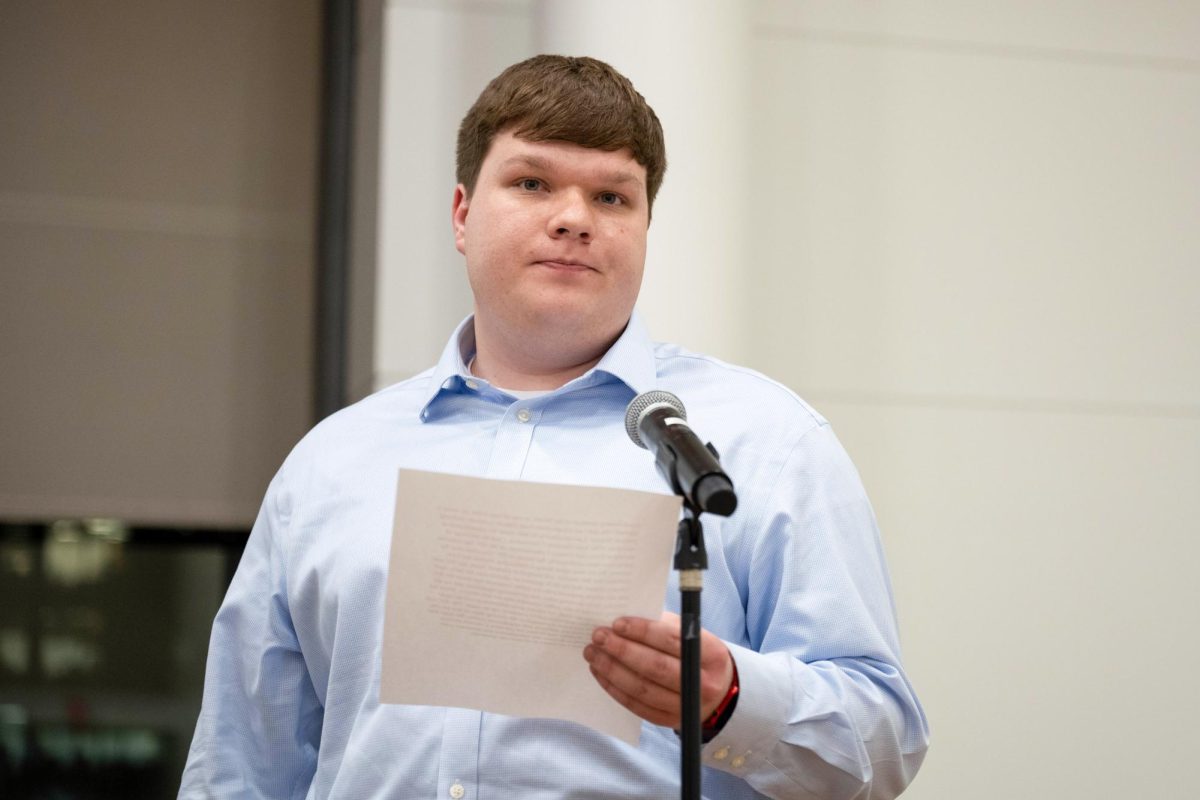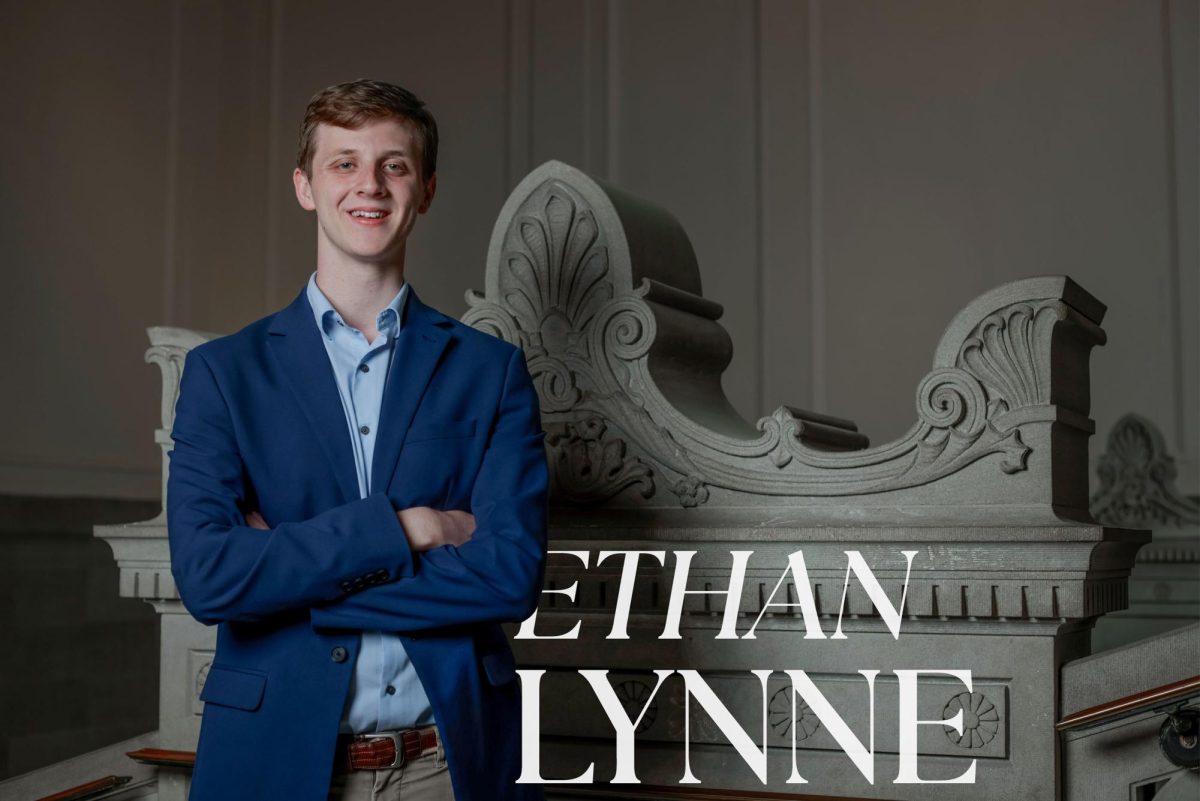Year: Sophomore
Major: Political science
Hometown: Surprise, Arizona
Student organizations, campus activities: Cisneros Hispanic Leadership Institute, GW Organization of Latin American Students
Prior SGA experience: Legislative assistant for the Sustainability Committee, CCAS undergraduate senator, chair of Sustainability Committee, chair of the Community, Advocacy and Inclusion Committee
Favorite D.C. restaurant: Toryumon Japanese House
Go-to GW study spot: Cisneros Hispanic Leadership Institute
Who is your role model: My abuelita
Ideal walk-out song: “Drive Me Crazy!” by Lil Yachty
GW Deli order: Bacon, egg and cheese on an everything bagel
Sophomore Claire Avalos wants to be the first.
If elected, Avalos said she’d be the Student Government Association’s first Hispanic vice president to her knowledge — diverging from the predominantly white, male governing body. Last year, nine of the 25 senatorial candidates identified as women. In contrast, almost 62 percent of students at the University identify as female. About 10 percent of students at the University identify as Hispanic.
Avalos served as a College of Columbian Arts & Sciences senator, legislative assistant and chair to several committees, and says she brings a nuanced perspective to the vice presidential role as someone who has a “life” outside of SGA and as a Latina student. She said she’ll channel her experiences on campus, including her involvement in the Cisneros Hispanic Leadership Institute, into her advocacy-centric platform that pledges to have conversations with administrators to promote free speech on campus and safeguard funding to multicultural organizations.
Originally “intimidated” by the role, she said she was inspired to run because she does not see many women of color in SGA’s current posts.
“I didn’t really see representation of someone like me or people from my community within SGA,” Avalos said.
She said as a Latina involved in multicultural organizations herself, she knows firsthand the expenses of planning a multicultural student organization event, especially when providing ethnic foods, which may be more costly or sparse in the District.
Avalos said step one to support multicultural organizations is to reevaluate funding disbursement to organizations to ensure it is being spent “wisely.” She said as a senator, she doesn’t have the knowledge to fully understand where all of the student organization funding goes, but as vice president, she’d have access to this information to further advocate for multicultural organizations.
“It’s really making sure that’s in our mind when we allocate money,” Avalos said.
She said she’d also increase awareness of who is eligible for the University-Wide Programs Fund, which offers student organizations funding for campus-wide events and traditions, and improve application process transparency through mandatory finance informational sessions.
Avalos said she plans to advocate for “stronger protections” for student organizations, so groups can speak freely and organize without fear of retaliation from officials. Avalos’ platform point comes in the wake of her sponsorship of the Justice for Student Speech Act, which affirmed SGA’s support for peaceful protests during the pro-Palestinian encampment last spring.
Avalos said she wants to invite student organization leaders to SGA president and vice president’s routine meetings with GW’s top officials.
“What’s really important right now is making sure student orgs are actually involved in the conversation,” Avalos said.
Avalos said she’d also work to address student safety by advocating for a limit to the quantity of firearms GW Police Department officers carry and involving students in the hiring process for the new police chief through town halls and conversations with administrators.
University President Ellen Granberg said last month that revisiting the decision to arm GWPD officers is not something she “foresees.”
“It’s a really big issue that endangers the student population, and it’s clear that having such a large number have access to it endangers the broader GW community,” Avalos said.
Avalos, if elected, said she’d work with deans and directors of the University to craft a “comprehensive plan” to lower tuition costs, which are increasing to $69,780 next academic year. She said she hopes to see GW lower costs by the end of her term, but beyond talking with administrators, she doesn’t have a concrete plan to tackle mounting tuition costs.
Avalos said when she was collecting signatures to launch her bid for candidacy, a concern many students expressed surrounded the fencing around University Yard. She said as vice president, she’d ask Dean of Students Colette Coleman and facilities leadership why they erected the fencing in U-Yard and how long the fencing will remain installed.
It was just an intimidation tactic from the administration’s part to ensure that students don’t use their voice,” Avalos said. “Which is kind of contradictory to the message of GW and being a place for changemaking. It’s really hypocritical.”
Avalos said by the end of her potential term, she’d like to draft an accountability report to share on Instagram and at a SGA Senate meeting to outline what the SGA was able to accomplish in the term. Former SGA President Arielle Geismar shared similar reports during her term last year.
“As vice president, I want to make sure students are aware of what me, the president and the full SGA body are doing,” Avalos said.


